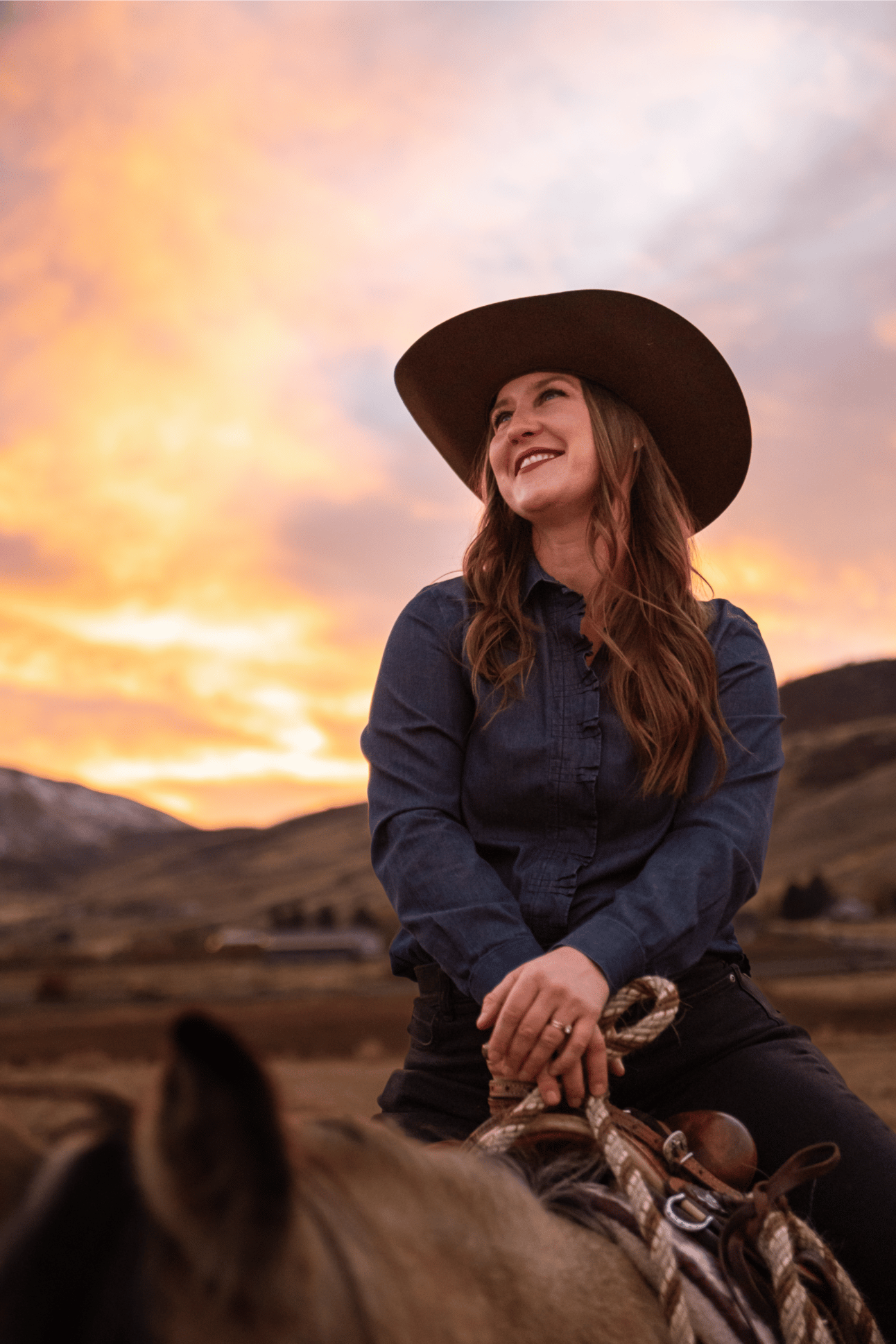- Resilient Reiner Newsletter
- Posts
- Preparation vs. Execution — Lessons from the AQHA World Show
Preparation vs. Execution — Lessons from the AQHA World Show

Hey! Prefer to listen instead of read the Newsletter? I got you! The Resilient Reiner Newsletter also comes as a podcast! 🎙️ Tune in to listen now!
We just wrapped up the 2024 AQHA World Show—woo hoo! What a time. The energy, the competition, the stories. Every competitor at the World Show shows up prepared. Or at least, they think they are. They’ve spent hours in the saddle, practicing patterns, perfecting maneuvers, and drilling transitions—all with the hope that when they step into the pen, it all comes together.
But here’s the thing: preparation doesn’t always guarantee execution.
Let’s talk about one of my favorite classes to watch: Junior Reining. This division highlights something special—because these younger horses are less seasoned, you really see how much a rider’s confidence, mental preparation, and leadership influence the outcome. It’s like watching a masterclass in mental toughness and emotional connection with your horse.
Let me share one ride with you that stood out from the rest.
Setting the Stage
It’s Junior Reining at the AQHA World Championship Show. The horses are gleaming under the lights in the Norick Arena, manes flowing like a Pantene shampoo commercial. Riders are decked out in starched shirts, every detail polished to perfection. Each competitor steps into the pen with one goal: to win.
Competitor 5885 enters the arena. The pattern starts with a rundown, and this rider means business. They charge hard, building speed, faster and faster, before nailing a solid sliding stop. Definitely a plus for the maneuver—maybe not the biggest stop ever, but still impressive.
And then... disaster strikes.
The next part of the pattern the horse has to back after the sliding stop. Well, this horse thought maybe, just maybe they were going to rollback. (I mean, rollbacks do follow the stop in many patterns…) Oops. The rider fixed it and the horse just kind of waved sideways then backed squiggly before straightening out and backing in a workmanlike but not overly fast or impressive fashion.
Not ideal.
Now, be honest: what would you be thinking in that moment? If this were you, what would you feel? Would you be able to pull yourself together and keep going?
Let’s be real. Most folks would be pretty darn rattled.
You might think your run was over. Might as well throw in the towel. I mean, how could you possibly recover from this?
Well, let me tell you. It ain’t over till it’s over, sugarplum
Here’s what they did instead: they took a couple deep breaths, paused at the center, and mentally reset. They didn’t let the mistake define the rest of their ride. Instead, they focused on the next maneuver, fully present, fully committed. And they rode the pants off the rest of the pattern.
And walked away a World Champion.
That rider? One of my favorites: Trevor Dare, on Girl Almighty, a stunning 2019 bay mare who proved just how far great partnership and mental resilience can take you.
What Made the Difference?
At this level, every horse is nice. Every rider can ride. So what separates the champions from the rest?
It’s not about skill—it’s about mental preparation.
Trevor didn’t win that class because he made fewer mistakes. He won because he knew how to recover from them. His ability to stay calm, adapt, and refocus after a rocky moment is what allowed him to finish strong and impress the judges.
This kind of resilience doesn’t just happen—it’s built.
What You Can Learn
Let’s be real. Every ride has the potential for things to go sideways. Maybe your horse spooks. Maybe you miss a cue. Maybe the pressure gets to you. What separates the riders who thrive from the ones who crumble is their ability to reset and move on.
You don’t have to be perfect to be successful. But you do have to be prepared for imperfection.
This means:
Training your mind to stay calm under pressure.
Practicing how you’ll recover when things don’t go to plan.
Building the confidence to trust your preparation, even when the moment feels overwhelming.
This is why mental preparation is just as important as time spent in the saddle.
Your mission should you choose to accept it, cowboy, is to brainstorm 3 ways to add pressure to your rides so that you can practice at home. This can be simple, or it can be elaborate. I highly encourage you to keep it simple. The KISS principle is fabulous.
Then, implement at least one of them in one single ride. It doesn’t have to be perfect. But I want you to take action! Then send me a message or tag me on social media @nicoleburnettmentalcoach so I can cheer you on!
Ride on with confidence,
Nicole
PS- If you’re ready to take your mental game to the next level, I can help. Whether it’s bouncing back from a tough moment, staying focused under pressure, or simply building the confidence to ride your best, my coaching is designed to prepare you for whatever the show pen throws at you. Come join us in Resilient Reiner Academy today!


Reply